News
Looking to the Past
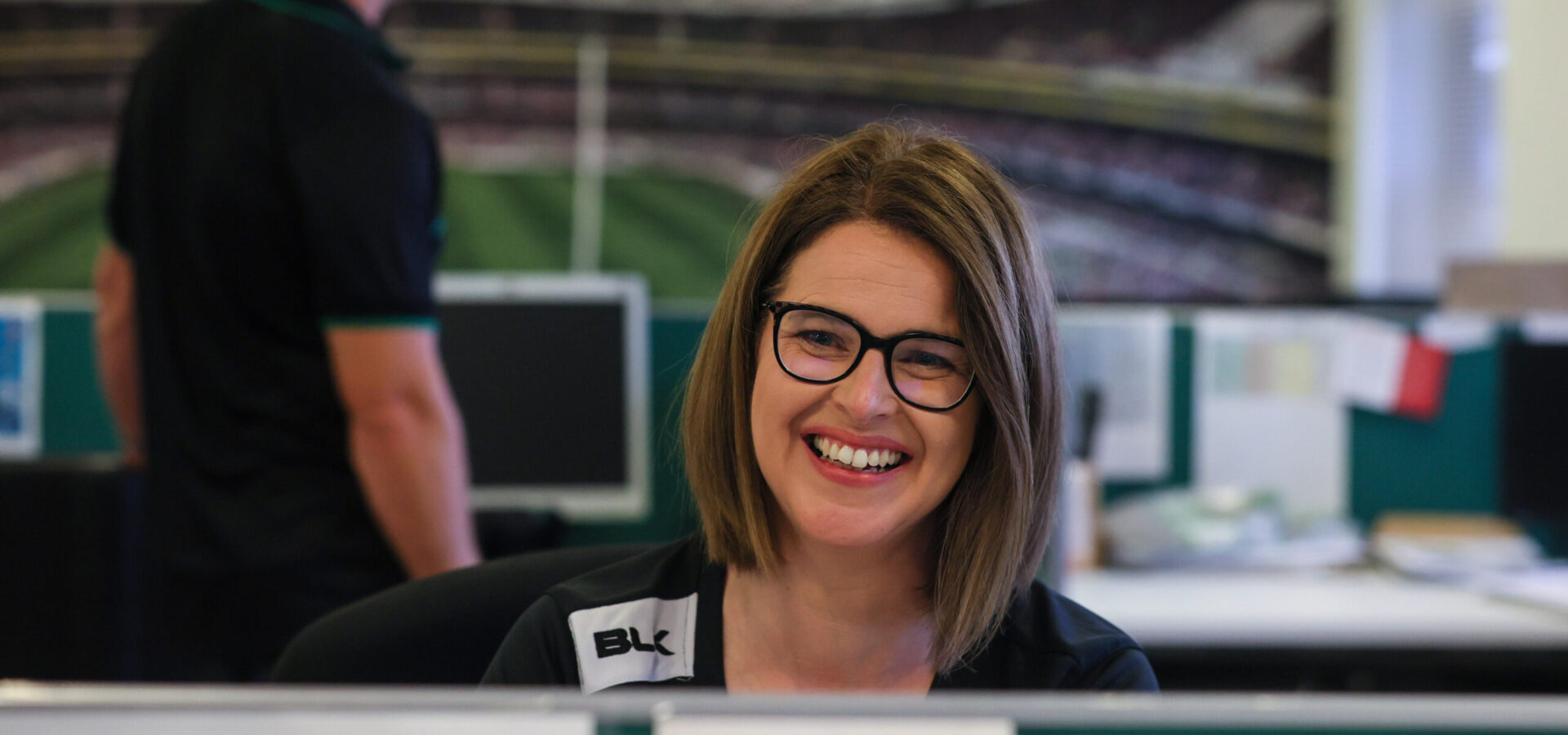
Dr Deirdre Lyons reflects on her time as Connacht Rugby PDM as she turns her attentions to the past player support programme at Rugby Players Ireland.
When I started with Rugby Players Ireland (then IRUPA) in 2013, personal development outside of rugby was very much seen as an ‘optional’ support. Fast forward 10 years and everyone in the high-performance system at Connacht Rugby values how important it is to see the player as a person first, and that optimising a players’ time in the game can have benefits – on and off the pitch.
Two key moments stick out for me. One was in 2018 when Willie Ruane, as Connacht Rugby CEO, approached me to ask how the province could better support players in this space. Following conversations between the IRFU, Rugby Players Ireland and Connacht Rugby, we trialled the integration of the Rugby Players Ireland Player Development Manager (PDM) into the Connacht senior and Academy professional teams.
The second moment that sticks out was when Andy Friend took over as Head Coach. Before he started, Andy rang me to introduce himself and to outline his philosophy for working with players and staff. He was a big believer in personal development and the importance of creating well-rounded players. The proposed integration that Willie had previously suggested therefore became pretty seamless and a gamechanger in how I work.
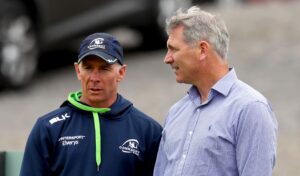
Mandatory Credit ©INPHO/James Crombie
On a practical level, this meant I was involved in management and staff meetings and had an accessible office onsite, but more importantly I felt supported by having the players’ personal development seen as an important pillar of the high-performance programme. Rather than chasing everyone for their time, I was now able to walk out onto the pitch to observe training and chat to the injured players on a casual basis. I was able to attend team meetings, align with the team’s focus for the week and interact with all the other coaches and staff which made for the creation of organic relationships.
This was something I was grateful for when Eric Elwood and Pete Wikins stepped up in recent seasons. Like Nigel and Andy before them, Eric and Pete also view a player’s development outside of rugby as part of their individual performance plan. I think this is reflective of the holistic approach now being taken by Irish coaches.
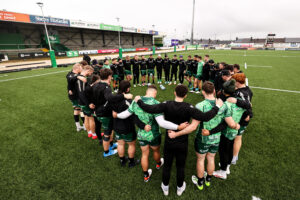
Mandatory Credit ©INPHO/Ben Brady
Over the years there have been lots of little wins but it’s not until much later on that you learn of the impact you have had on players’ lives. The Player Development Programme (PDP) is very much a person-to-person support. While we use technology and online resources, it is being present in the players’ lives that sets us apart. Backed by Omar Hassenein and Simon Keogh, the PDP has grown considerably since I joined Rugby Players Ireland in 2013. Today we have seven PDMs working with every province and senior national sides.
When I started, I didn’t know what to expect with IRUPA. Logistically, I was covering two teams (Munster and Connacht) over three bases (Cork, Limerick and Galway). Furthermore, during my 15 years at the Sport Ireland Institute I had worked predominantly with amateur athletes so I found that the challenges rugby players faced were often very different. Trying to influence professional players to look towards life after rugby was very difficult at first, but over time we built a sound philosophy to our programme that was built around three main areas:
- Whole person – players are people first
- Whole career – rugby is part of, and contributes to, a life career
- Whole environment – the network of factors, influences, and support systems that surround a player as they move through different phases of their career
This approach helped me to meet players where they were at in their stage of development, understand the context that they operate in, and view their time in rugby as a phase of their development that they can optimise both now, and in the future.
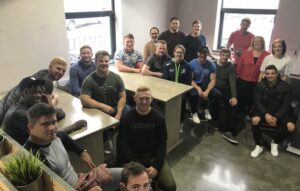
Initially my aim was to build relationships and trust with all stakeholders. Later, as I began to lead the programme, I also had to show how it added value not only to players, but to the Irish rugby system as a whole. We developed a database to track players’ development and this enabled us to put data behind what we do. Players and staff are used to tracking rugby development, so why should their personal development be any different?
One of my first meetings in Connacht Rugby was with Eoin Griffin, the IRUPA player rep at the time. Throughout all of my years, working closely with the player reps Eoin Griffin, Eoin McKeon, Eoghan Masterson, Tom Daly; RPI Executive Board members Ronan Loughney, Eoin McKeon, Jack Carty and Dave Heffernan; and the Academy reps Oisin Michel, Eoin de Buitlear, Sean Masterson and Paul Boyle has been crucial for understanding what is needed on the ground by the players. Enjoying positive relationships with Tim Allnutt (Head of Rugby Operations), and with Academy Managers Nigel Carolan and Eric Elwood also helped me massively in managing the timing of meetings and interventions with players.
Over the years some parts of the role have changed considerably but the same old chestnuts appear every year. At the start of every season the mood in the squad is always very positive and welcoming. It is like the slate is wiped clean and ‘we go again’. Getting to know new players can be challenging but it is a part of the job that I really love. I also ensure to check in with the players who have recently left the club. For some it might be the first pre-season in over a decade that they are not part of and that can be a major adjustment.
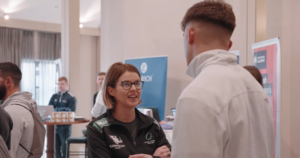
Thankfully, there is quite an impressive culture within rugby in Ireland of combining rugby with some form of education. These habits are established in the Academy and then build through the senior ranks. The transition into the professional set-up can be stressful, particularly if players are living away from home from the first time. With study on top of their rugby commitments, it is a lot to ask of a young person. Helping players to navigate that stressful period, while working with colleges to provide increased levels of flexibility, is very time consuming as much of the support is individualised. I am very lucky in Connacht to have built up some great relationships with academics in the University of Galway and the Atlantic Technological University, who are very supportive of players in their ambition to play rugby at the highest level.
There will be many stresses and anxieties throughout a rugby player’s career. In my time with Rugby Players Ireland, the awareness of mental health challenges has changed exponentially. When I started, IRUPA had a 24-hour helpline that was rarely used whereas now, thanks to the efforts of Dr Ella McCabe, Mark Smyth and Aoife Lane, we have a well-established Mental Wellbeing service that has recently been extended to past players and partners of current players.
We also run mandatory mental wellbeing workshops every year in clubs, while the Tackle your Feelings campaign has given players a language to speak about their emotions openly. There is still some work to be done in this area, and education and awareness needs to be delivered regularly, but the difference the service has made to some players lives is immeasurable.
While I am proud of the many improvements to the PDP, it can also be a challenging space to operate in. For instance, being an independent support in a club can be difficult. The PDM role is very much person and player focused, meaning that some issues that players share with you, may not be liked by the club. As confidentiality and trust is a cornerstone of my work, these values help guide my practice. I have been fortunate to work alongside Aidan O’Flynn, a sports psychotherapist who works with the Academy, and together we can bounce new ideas and old frustrations off each other, as well as support each other with difficult or complex cases (with the player’s permission of course!).
Above all, the biggest challenge is that you are working with players who absolutely love what they do, and during the season are so focused on their rugby, that development outside of the game can get pushed to the side. It’s completely understandable, so knowing when to push players, and when to lay off them, is really important. It took me years (and a lot of wasted energy) to be comfortable with the fact that some players simply do not wish to engage. Ultimately, I had to realise that a player’s personal development is their own responsibility.
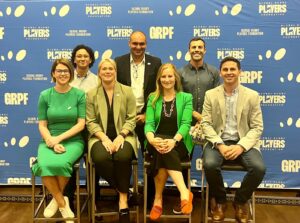
I am fortunate to do some consultancy work with the International Rugby Players, so I get to meet Lead PDMs from other rugby nations, and there are some great examples of best practice that I believe would be great to emulate here in Ireland. Learning from best practice all over the world, and not just in rugby, will allow the programme here in Ireland to grow and constantly evolve to meet players’ needs.
An exposure to international practices also means I can confidently say that we are world leaders in the Player Development space. My vision is for each PDM to be integrated with their teams and clubs, so that the Player Development Programme is seen by all those who work in professional rugby as integral to a player’s overall development. I’d also like to have two PDMs based at each club. One working with the current senior players, and one working with the younger Academy and NTS (national talent squad players) and transitioning/retiring players. Not only will players receive more care, but PDMs will also be able to support each other.
It has been a privilege to work with so many players and staff over my 11 years at Connacht Rugby. Making a different in a person’s life, to their overall development and wellbeing, is really worthwhile. Being part of their journey to achieve their goals, both rugby and otherwise, is also rewarding. Working with a variety of players at different levels and from different cultures, that change year on year, has made sure there is plenty of variety coming through my door.
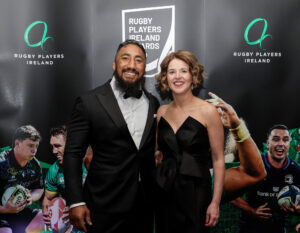
Mandatory Credit ©INPHO/Laszlo Geczo
I’m now looking forward to the opportunity to oversee the strategy development of the new past player support programme at Rugby Players Ireland. I was involved in the establishment of the Global Rugby Players Foundation (GRPF) from its inception back in 2021. Listening to the greats of the game like Dan Carter, Jonny Wilkinson. Conrad Smith and Rachael Burford talk about what they wanted to create for all elite and professional rugby players was really inspiring. To see the GRPF finally launched at the end of May was fantastic, and to be one of the first countries to receive funding to pilot a past player programme is a real testament to the team at Rugby Players Ireland and our vision for the future.
Recently RPI were also the first organisation to launch World Rugby’s Brain Health Service for its past players, and together, these two offerings will transform how we support our past players here in Ireland. We recently conducted an independent review of the Player Development Programme, and how we care for our current players is up there with one of the best support programmes in the world. My ambition for the future is to ensure that our support of past players too, is seen as world-leading, and one that other sports will want to emulate.
Personally, I have developed massively at my time in rugby. I have completed my PhD and gained further qualifications in Psychology, Career Coaching and Mentoring. I work as a consultant with International Rugby Players and sit on the Steering Group of the World Players Personal Development Committee. I have built connections all over the world with and am lucky enough to have travelled extensively through numerous CPD opportunities.
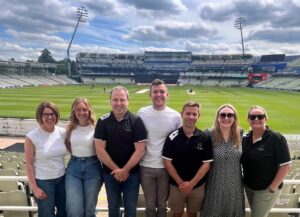
This would not have been possible without the support of the team at Rugby Players Ireland. We have a really great team of dedicated, ambitious, like-minded individuals, so working alongside them always motivates me to want to achieve more in this space, and truly make Ireland the best place in the world to play rugby.
Back to News
Latest Posts

Highlights: September 2025

Highlights: August 2025

Signify Group to Protect Players from Online Abuse
















